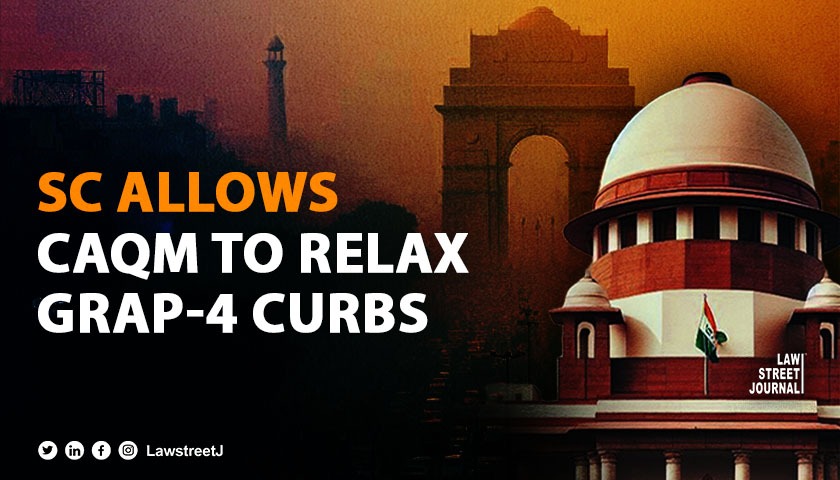NEW DELHI: The Supreme Court on Friday allowed the Commission for Air Quality Management (CAQM) to bring down strict anti-pollution GRAP-4 (Graded Response Action Plan) measures to Stage-2, in the national capital region in view of the improvement recorded in the air quality index (AQI) levels.
A bench of Justices Abhay S Oka and Augustine George Masih, however, asked the CAQM to include some additional measures of GRAP-3 in Stage-2 curbs.
Supreme Court Eases GRAP-4 Curbs, Retains Key Measures in NCR
The bench pointed out that up to November 30, the AQI levels were consistently above 300, but during the last four days the AQI levels have come down below 300.
On a submission made by Additional Solicitor General Aishwarya Bhati, appearing for the Centre, the bench said it is true that at some stage it will have to leave it to the CAQM to decide the applicability of stages under GRAP.
The bench told the CAQM that Stage 3 curbs would be introduced if AQI crossed the 350 mark and Stage-4 curbs if AQI crossed 400.
Improved AQI Levels Prompt Adjustments in Anti-Pollution Rules
Bhati submitted that as per the latest AQI figures, GRAP-4 measures can be relaxed, as there is a clear downward trend in the AQI. Bhati stressed that GRAP-4 measures are "very disruptive".
Considering the data submitted to the court, the bench said it does not think it will be appropriate at this stage to allow the commission to go below Stage 2.
“So, we permit the commission to go to stage 2 for the present. It will be appropriate if the commission may consider incorporating certain additional measures which are part of Stage 3,” the bench said.
However, the bench made it clear that if AQI crosses 400 on a given day, stage 4 measures will have to be re-introduced.
During the hearing, the court directed the NCR states Delhi, Rajasthan, Uttar Pradesh and Haryana to convene a meeting with all workers' unions, to get the workers registered in the online portal so that they become eligible to receive the subsistence allowance paid when when they remain unemployed due to the ban on construction activities to anti pollution measures.















